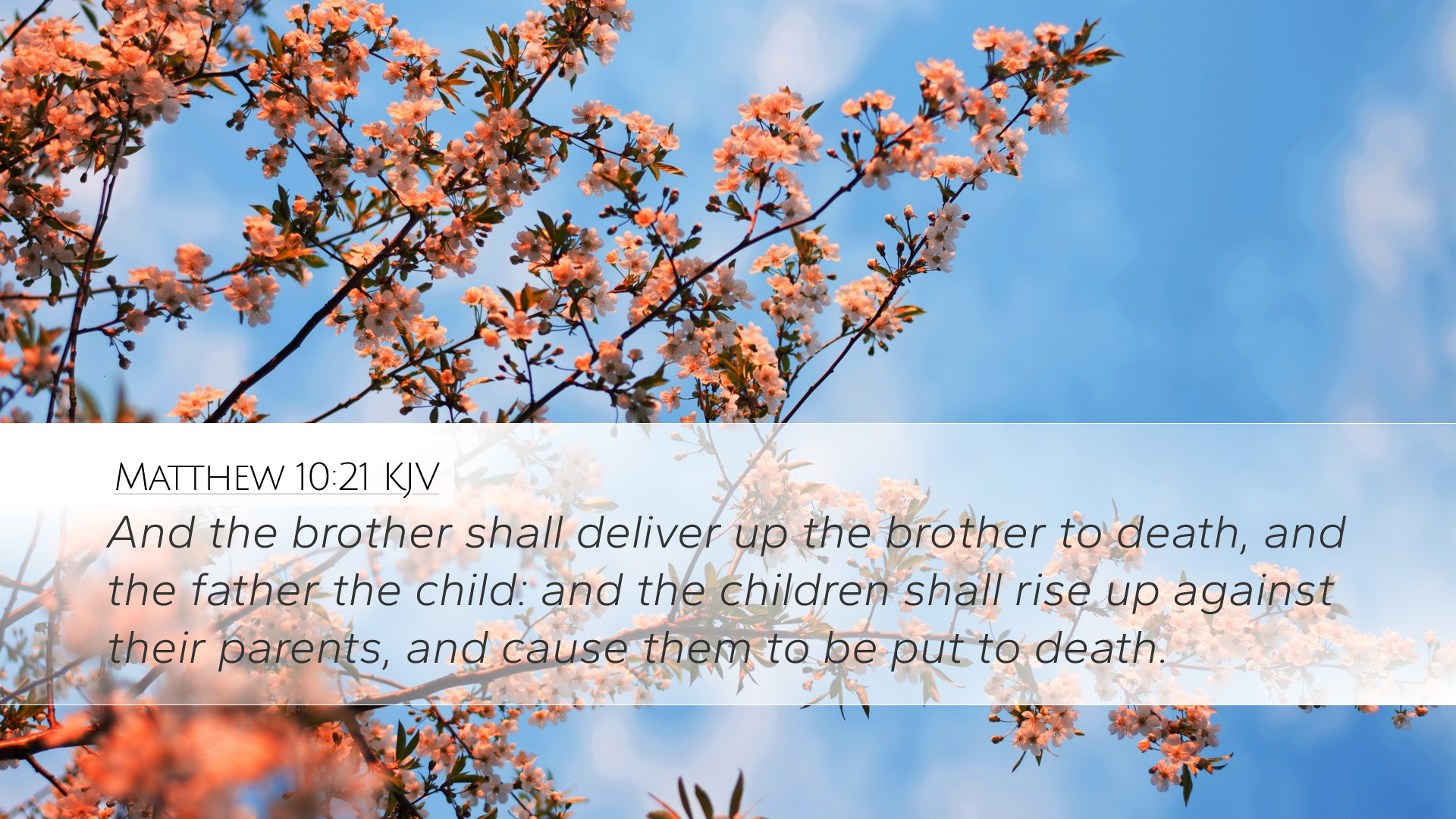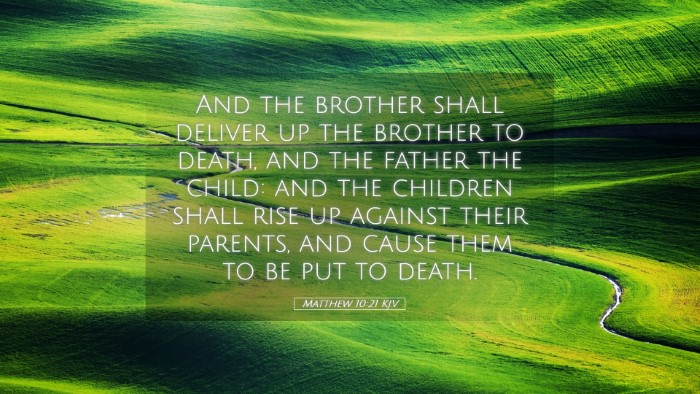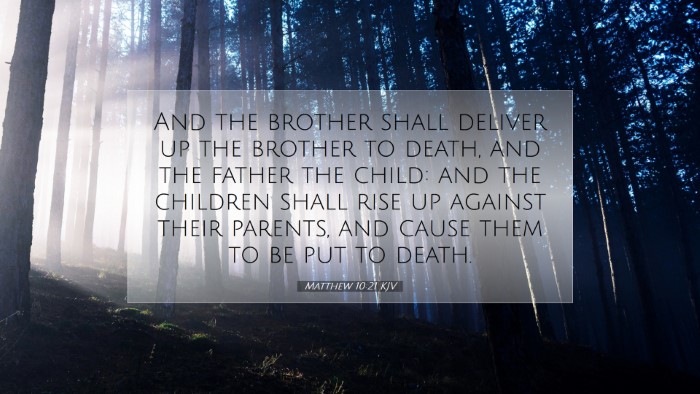Commentary on Matthew 10:21
Verse Reference: "And the brother shall deliver up the brother to death, and the father the child: and the children shall rise up against their parents, and cause them to be put to death."
Introduction
Matthew 10:21 offers a dire warning of familial betrayal amidst the trials faced by the followers of Christ. In this commentary, we draw insights from respected public domain scholars such as Matthew Henry, Albert Barnes, and Adam Clarke to unpack the verse's theological implications and its historical context.
The Context of Matthew 10
This verse appears in a section of Matthew's Gospel where Jesus instructs His disciples on the challenges they will face as they spread His message. The overall themes of persecution and sacrifice are prevalent throughout this chapter, culminating in a sobering reminder of the divisions that discipleship may cause, even within families.
Exegesis of the Verse
-
Matthew Henry’s Perspective:
Henry emphasizes that this betrayal is part of the broader sufferings that believers will endure for the sake of the Gospel. The expectation of suffering is contrasted with the reality of familial loyalty, suggesting that true discipleship may lead to conflict even among loved ones. Henry sees this as a fulfillment of prophetic scripture, indicating that Christ’s ministry would not instigate peace, but rather polarize people into distinct sides.
-
Albert Barnes’ Insights:
Barnes elaborates on the social dynamics of the first-century Jewish society, where family loyalty was paramount. He notes that the disciples’ commitment to Jesus might strain these bonds, as the radical nature of the Gospel challenges societal norms and expectations. Barnes highlights the encouragement Jesus provides: even as family members may betray, the ultimate allegiance lies with God, thus invoking a higher loyalty.
-
Adam Clarke’s Commentary:
Clarke’s analysis points to the prophetic undertone in this verse, drawing parallels with historical instances of persecution in Israel’s past. He interprets the familial conflicts as reflective of a spiritual struggle, where devotion to Christ leads to divisiveness. Clarke argues that this verse serves as a somber reminder that the path of following Christ is fraught with personal and social ramifications.
Theological Implications
The ramifications of Matthew 10:21 resonate with contemporary readers and followers of Christ today. The verse serves as a reminder that faith in Christ can lead to profound challenges, including estrangement from family. This period of spiritual upheaval may compel believers to reevaluate their priorities and allegiances, emphasizing that discipleship often means enduring hardship for the sake of the Gospel.
Furthermore, this passage underscores the theme of sacrifice intrinsic to Christian life. It challenges believers to consider their response to suffering and betrayal, reinforcing that loyalty to Christ must take precedence over all earthly ties, even to those dearest to us.
Application for Pastors and Theologians
-
Pastoral Care:
In understanding this scripture, pastors are equipped to offer compassionate guidance to congregants who experience division within their families due to their faith. Encouraging open conversations about these challenges can foster healing and reconciliation while honoring the ultimatum of loyalty to Christ.
-
Discipleship Training:
For theologians and leaders, this verse serves as a pivotal point for discipleship training. Addressing the concept of suffering and betrayal can prepare believers to make difficult choices in their spiritual journey, fostering resilience amidst trials.
-
Ethical Reflection:
Scholars are invited to reflect on the ethical dimensions of familial betrayal in the context of faith. Discussions surrounding the balance between family obligations and spiritual vocations can lead to fruitful theological exploration and a deeper understanding of the implications of Matthew 10:21.
Conclusion
Matthew 10:21 serves as a profound reminder of the costs of discipleship, echoing through time to challenge contemporary believers in their walks of faith. Through the insights of Henry, Barnes, and Clarke, we grasp the depth of Jesus' message: the call to follow Him demands surrender, even at the expense of earthly relationships. May this understanding bring strength to those who find themselves at the crossroads of faith and familial loyalty, encouraging them to uphold their commitment to Christ amidst life's trials.


